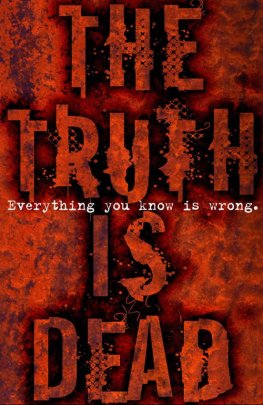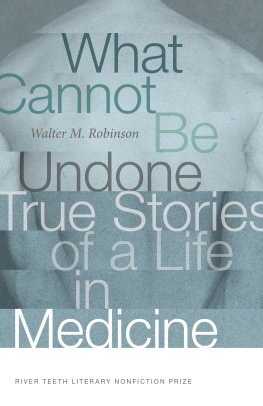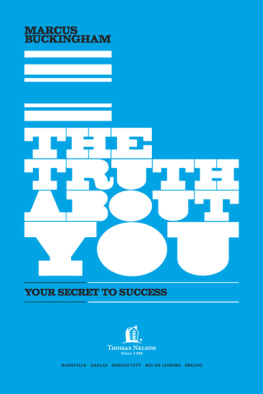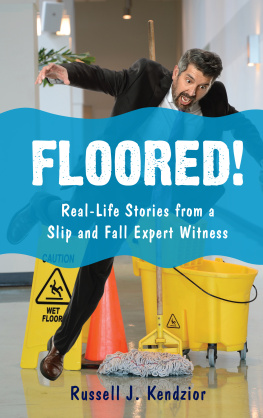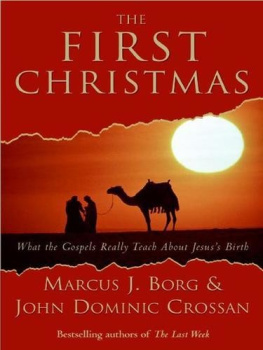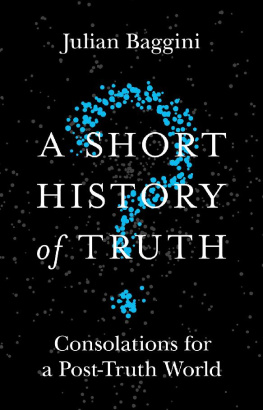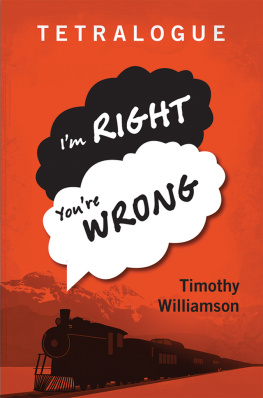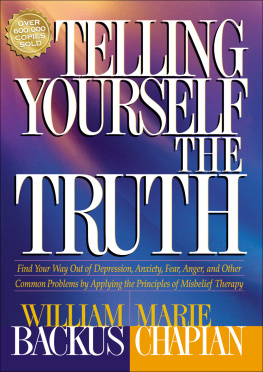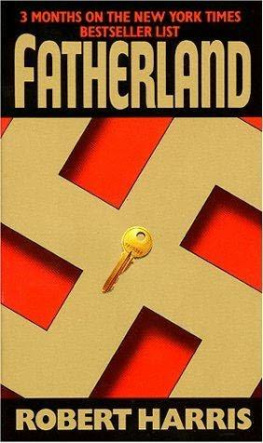Marcus Sedgwick - The Truth is Dead
Here you can read online Marcus Sedgwick - The Truth is Dead full text of the book (entire story) in english for free. Download pdf and epub, get meaning, cover and reviews about this ebook. City: London, year: 2011, publisher: Walker Books Ltd, genre: Science fiction. Description of the work, (preface) as well as reviews are available. Best literature library LitArk.com created for fans of good reading and offers a wide selection of genres:
Romance novel
Science fiction
Adventure
Detective
Science
History
Home and family
Prose
Art
Politics
Computer
Non-fiction
Religion
Business
Children
Humor
Choose a favorite category and find really read worthwhile books. Enjoy immersion in the world of imagination, feel the emotions of the characters or learn something new for yourself, make an fascinating discovery.
- Book:The Truth is Dead
- Author:
- Publisher:Walker Books Ltd
- Genre:
- Year:2011
- City:London
- ISBN:9781406339444
- Rating:4 / 5
- Favourites:Add to favourites
- Your mark:
- 80
- 1
- 2
- 3
- 4
- 5
The Truth is Dead: summary, description and annotation
We offer to read an annotation, description, summary or preface (depends on what the author of the book "The Truth is Dead" wrote himself). If you haven't found the necessary information about the book — write in the comments, we will try to find it.
The Truth is Dead — read online for free the complete book (whole text) full work
Below is the text of the book, divided by pages. System saving the place of the last page read, allows you to conveniently read the book "The Truth is Dead" online for free, without having to search again every time where you left off. Put a bookmark, and you can go to the page where you finished reading at any time.
Font size:
Interval:
Bookmark:
THE TRUTH IS DEAD

INTRODUCTION
The truth is dead. Or, at least, after these short attacks upon it, lies seriously, perhaps fatally, wounded.
What follows are eight examples of stories sometimes described as counterfactual that is, they take an event in history and consider how things might have turned out if one or two factors has been just that little bit different. There is a long and noble tradition of playing around with the facts in this way: the winners in history the guys with the biggest swords, the nastiest guns and often the worst sense of humour have, after all, always indulged their imaginations to a degree. The history they tell is sometimes true, but only from a certain point of view.
Collecting these tales has been a wonderful and enjoyable process, and as an author I can give them no higher compliment than to say that I wish Id written every one of them myself. Including my own which was actually written by the team of eager monkeys I keep locked in my cellar. (No story? No banana!)
The great thing about this type of story is that its simply a lot of fun wondering, What if? Now, obviously, this is only interesting if you know which episode in history has been tampered with. Some of the stories in this anthology relate to very well-known moments, others to those less well known. There are explanations along the way to fill in some gaps but if you need telling that the moon didnt explode in the 1980s, then maybe this isnt the book for you
The stories appear in chronological order and span a couple of thousand years of human history. We start a good long time ago, in the desert with that most famous of carpenters: Jesus. Anthony McGowans story focuses on the period in Jesuss life when he wandered through the desert for forty days and forty nights and was tested and tempted by the Devil.
Our next story my own takes us to nineteenth-century Europe. It centres on Napoleon, the short and apparently rather stroppy French emperor who ruled most of the Continent for a decade or so, having made his name as a military commander in the years before and during the French Revolution. After a series of defeats, Napoleon was forced to abdicate and was sent to live in exile on the island of Elba. But, as you will see when you read my story, he never stopped scheming about ways to make his comeback
I cant go into too much detail about our next two stories without giving the game away, but I will say that their choice of subject is very interesting and significant for subsequent history. The first of these, Mal Peets story, is set in pre-World War One Vienna. The Austrian capital was at that time an extraordinarily fertile place, both culturally and otherwise, full of people who were to have a major impact on the twentieth century. Mal has chosen to write about perhaps the most famous one of all
The second, Linda Newberys tale, takes us onto the battlefields of France in 1914, at the beginning of the First World War. It is difficult to comprehend the number of men killed in the four-year conflict an estimated eight million died and millions more were injured. Linda gives an insight into that bloody war and tells how the fate of one soldier was to change the course of history.
Next up is Philip Ardagh. His tale brings us ever closer to the real fascination of the counterfactual story as we discover how the history we take for granted could so easily have turned in a different direction. Taking inspiration from a genuine historical document one that was written but, in the course of events, never used Philip has chosen to retell the events of the 1969 moon landing.
The moon is also the subject of Matt Whymans story although it has a very different role to play here, as you will see. An embittered stand-off between the United States of America and the Communist Soviet Union over the development of nuclear weapons, part of what was known as the cold war, had dominated global politics since 1945. By the 1980s there was a very real fear that the conflict would escalate into a nuclear Armageddon. If war did break out, the British would have only a four-minute warning the estimated time it would take for a Russian missile to reach the UK before the world ended.
As the close of the twentieth century approached, global paranoia turned in a different direction: what would happen to the worlds computers when the clock struck midnight on 31 December 1999? Eleanor Updale draws on those fears in her contribution. Stories like this show just how easily the foundations of our society could slip away.
And for our final tale what could be more appropriate than a good bleak end-of-the world conspiracy theory? (And, heaven help any future historians if this mischievous book is the only record of the last two thousand years to survive that end!) Frank Cottrell Boyces story exploits this idea with his tale about the Aztecs. Suppose the Europeans had not decimated the Aztec civilization back in the sixteenth century, but rather that those Aztecs had conquered Europe. And suppose still further that their first conquest had been the village of Glasgow
The only other thing you need to know is that according to some interpretations of Aztec mythology, the world is due to end in 2012. (On 21 December, to be precise, in case you want to set a reminder on your phone.)
I hope you enjoy reading these stories as much as I enjoyed collecting them.
Marcus SedgwickJESUS WEPT
Anthony McGowan
According to the Gospels of Matthew, Mark and Luke in the New Testament, Jesus wandered in the desert for forty days and forty nights, during which time he was tempted by the Devil
That sandal was really bugging Jesus. Part of him knew it was insane to get annoyed by a mere sandal, given the fact he was alone in the wilderness, with nothing to eat but locusts not the juicy ones, mind, but dry desert locusts; hed have got more goodness out of that blasted sandal and nothing to drink but dew, lapped up off the bare rock where it formed in the morning.
And then there was that whole heavy thing about what he was supposed to be doing with the rest of his life. Going up to people and telling them to throw down their nets or whatever and leave their families and follow him, because he and this was the part that really made him cringe HE WAS THE SON OF GOD. What sort of job was that?
And beyond that, he knew there was something much, much worse. A time of necessary pain and death. He could have looked into the future more carefully and truly seen what was coming, but he denied himself that knowledge. It was cheating.
So perhaps thats why he was obsessing over the sandal. Because all the other things he could think about were way more depressing than a broken strap and a sole that flapped like a loose sail in a storm on the Sea of Galilee.
Jesus poked at the strap. There was probably a special tool for fixing those things. A sandal spangler, or strap thribber, something like that. His father would have known. His father would have fixed the cursed object in five seconds flat. Hed have held it up to his eye, turned it round, figured out exactly what had to be done, and got those strong brown fingers of his working. Joseph had been good with stuff. Jesus the klutz, on the other hand, was always whacking his thumb with the hammer, or accidentally nailing his hand to a plank in the workshop.
A tear spilled from his eye, rolled down his nose and plopped into the sand at his feet as he thought about the old man, dying, worn out before his time.
And then a faint yet oddly penetrating voice reached Jesus through his thoughts.
You, hey, wait.
Font size:
Interval:
Bookmark:
Similar books «The Truth is Dead»
Look at similar books to The Truth is Dead. We have selected literature similar in name and meaning in the hope of providing readers with more options to find new, interesting, not yet read works.
Discussion, reviews of the book The Truth is Dead and just readers' own opinions. Leave your comments, write what you think about the work, its meaning or the main characters. Specify what exactly you liked and what you didn't like, and why you think so.

